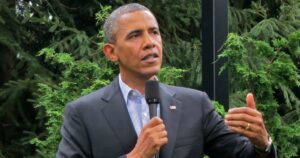Why large numbers of NYC Democrats reject Zohran Mamdani's candidacy
Could New York City’s next mayor be a socialist experiment gone wrong? Zohran Mamdani, the apparent frontrunner for the Democratic nomination in the mayoral race, has sparked a firestorm of dissent among many of the city’s own party faithful. His policies, seen by critics as anti-business and out of touch, are raising eyebrows and fears alike.
Despite clinching the Democratic primary, Mamdani faces fierce opposition from a broad swath of New York Democrats over concerns about his progressive agenda and perceived disconnect from everyday struggles.
Let’s rewind to the primary, where Mamdani didn’t even secure a majority in the first round. He edged out competitors like Andrew Cuomo and Brad Landers, but the fractured vote signals a party far from united. Many see his win as less a mandate and more a warning.
Concerns over anti-business policies grow
Critics are quick to point out Mamdani’s apparent hostility to the private sector. Hotel entrepreneur Jason Pomeranc warns that the candidate’s anti-capitalist stance could cripple industries like hospitality, already battered by high costs and tight margins.
“His ideological point of view would be comical if it wasn’t so scary,” Pomeranc said. But let’s be real: when policies threaten the lifeblood of a city’s economy, the laughter stops fast. New York thrives on its hustle, not on handouts.
Restaurant owner Richie Romero echoes this frustration, arguing that Mamdani’s approach would make an already tough business climate unbearable. High labor costs and empty storefronts are bad enough without what Romero sees as an unworkable socialist vision.
Community fears of a 'college town' shift
Pastor Conrad Tillard of the Congregational Church of South Hempstead, once a backer of Eric Adams, has no patience for Mamdani’s take on private property. He argues it undermines the economic gains Black New Yorkers have fought for through property ownership. This isn’t just policy—it’s personal.
“He wants to turn this metropolis into a college town,” Tillard declared. Turning New York into a playground for bike lanes and pedestrian plazas might charm campus idealists, but it alienates those who built their lives on the city’s grit.
East Village resident Andrew Bernstein, a supporter of Zellnor Myrie, is equally skeptical. He doubts Mamdani’s rent freeze proposals for stabilized apartments will fix the housing crisis, predicting they’ll just drive costs up for everyone else. If Mamdani wins, Bernstein warns he—and many others—might pack their bags.
Education and safety spark alarm
Phil Wong, a moderate Democrat from Elmhurst, Queens, and City Council candidate, fears Mamdani’s push to scrap gifted and talented programs. He sees this as a direct threat to parents who value educational opportunities for their children. A potential “mass exodus” of students from city schools isn’t hyperbole—it’s a risk.
Alicia Barksdale, a retired MTA toll collector from Harlem, questions how Mamdani plans to fund free bus services. She worries it could mean job cuts and slashed revenue for the MTA, hitting vulnerable workers hardest. When idealism meets reality, someone always pays the price.
Public safety is another sticking point, with Pomeranc highlighting Mamdani’s past anti-police rhetoric. If tourists and residents don’t feel secure, the city’s appeal—and its economy—could unravel quickly. Safety isn’t negotiable, no matter how lofty the rhetoric.
Cultural and international policy tensions
Sarah Sarway, a Jewish mother from Midwood, is troubled by Mamdani’s support for boycotting Israel. She fears this stance could embolden anti-Israel protests and endanger her community under his leadership. It’s a deeply felt concern, not a political talking point.
Romero, meanwhile, sums up a broader frustration with Mamdani’s lack of accountability. A promise of endless benefits without a clear funding plan feels like a child’s campaign for free pizza parties. New York deserves better than empty slogans.
The opposition to Mamdani isn’t just noise—it’s a chorus of real New Yorkers worried about their city’s future. From business owners to parents to retirees, the concerns are as diverse as the city itself. But the question remains: Can Mamdani bridge this divide, or will his vision push more Democrats away?



